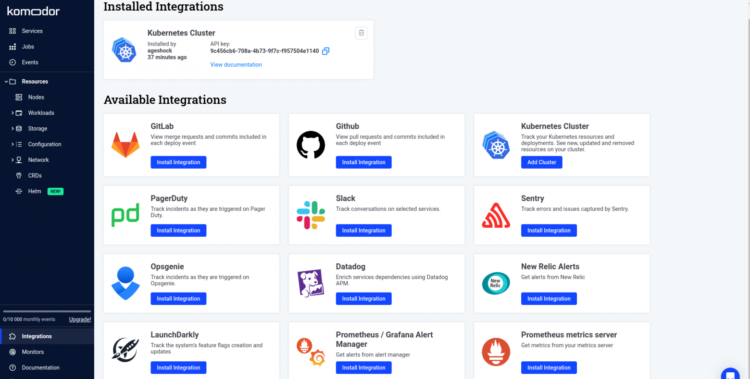Komodor: Revolutionizing Kubernetes Observability
Komodor, a Tel Aviv-based startup, is making waves in the world of Kubernetes observability with its innovative platform. Asincreasingly adopt Kubernetes for their containerized applications, the need for effective monitoring and troubleshooting tools becomes paramount. Komodor’s solution aims to simplify the complex task of managing and troubleshooting Kubernetes environments, enabling developers and operations teams to gain better visibility and control. In this article, we will delve into the key features and benefits of Komodor’s platform and explore how it is revolutionizing Kubernetes observability.
Enhancing Visibility with Advanced Monitoring Capabilities
Komodor’s platform provides advanced monitoring capabilities that allow users to gain deep insights into their Kubernetes clusters. With real-time visibility into the health and performance of their applications, developers can proactively identify and resolve issues before they impact end-users. The platform offers comprehensive metrics and logs aggregation, enabling users to monitor resource utilization, track application performance, and identify bottlenecks. Additionally, Komodor’s intuitive dashboard provides a holistic view of the entire Kubernetes environment, making it easier for teams to understand the overall health and status of their applications.
Furthermore, Komodor goes beyond traditional monitoring by offering powerful tracing capabilities. By tracing requests across microservices, developers can pinpoint the root cause of issues and optimize performance. This feature is particularly valuable in complex distributed systems where identifying the source of a problem can be challenging. With Komodor’s tracing capabilities, developers can reduce mean time to resolution (MTTR) and improve the overall reliability of their applications.
Streamlining Troubleshooting with Intelligent Incident Management
One of the key challenges in Kubernetes environments is troubleshooting incidents effectively. Komodor addresses this pain point by providing intelligent incident management capabilities. When an incident occurs, Komodor automatically captures all relevant information, including configuration changes, events, and logs. This comprehensive incident timeline allows developers to quickly understand the context and impact of the incident, facilitating faster resolution.
Moreover, Komodor’s platform offers powerful collaboration features that enable seamless communication and coordination among team members during incident response. With real-time updates and notifications, teams can work together efficiently, reducing downtime and minimizing the impact on end-users. By streamlining the troubleshooting process, Komodor empowers organizations to maintain high availability and deliver exceptional user experiences.
Accelerating Development with Automated Deployments
Komodor understands the importance of streamlining the deployment process in Kubernetes environments. With its automated deployment capabilities, developers can accelerate the release of new features and updates. Komodor integrates seamlessly with popular CI/CD tools, enabling organizations to automate their deployment pipelines and ensure consistent and reliable releases.=
The platform also provides advanced deployment monitoring, allowing developers to track the progress of deployments in real-time. With detailed insights into each step of the deployment process, teams can identify potential issues early on and take corrective actions promptly. By automating deployments and monitoring their progress, Komodor empowers organizations to iterate faster and deliver value to their customers more efficiently.
Ensuring Security and Compliance with Enhanced Auditing
Security and compliance are critical considerations in Kubernetes environments. Komodor addresses these concerns by offering enhanced auditing capabilities. The platform tracks all configuration changes and provides a comprehensive audit trail, enabling organizations to meet regulatory requirements and ensure a secure environment.
Komodor’s auditing features also help organizations identify and mitigate potential security risks. By monitoring changes to critical resources and detecting unauthorized access attempts, the platform enables proactive security measures. With Komodor, organizations can enhance their overall security posture and minimize the risk of data breaches or unauthorized access.
Conclusion:
Komodor’s platform is revolutionizing Kubernetes observability by providing advanced monitoring, intelligent incident management, automated deployments, and enhanced auditing capabilities. With its comprehensive suite of tools, Komodor empowers organizations to gain better visibility and control over their Kubernetes environments, enabling faster troubleshooting, accelerated development, and improved security. As Kubernetes adoption continues to grow, Komodor’s solution is poised to play a crucial role in helping organizations unlock the full potential of this powerful container orchestration platform.













Post Comment